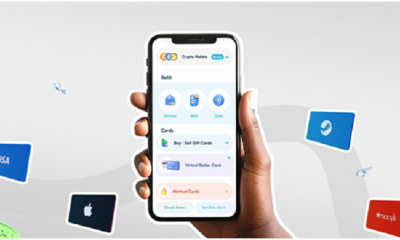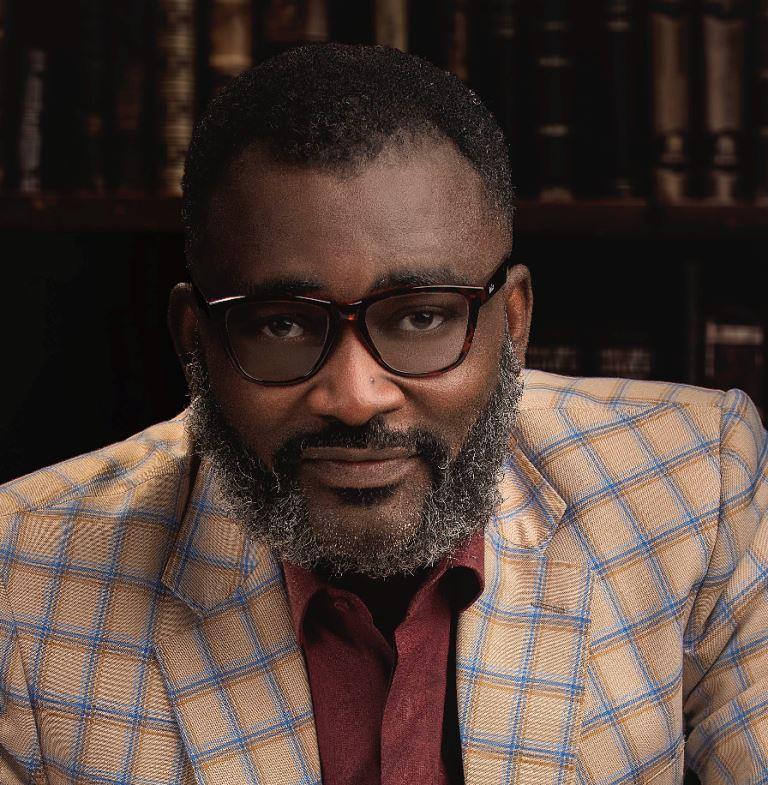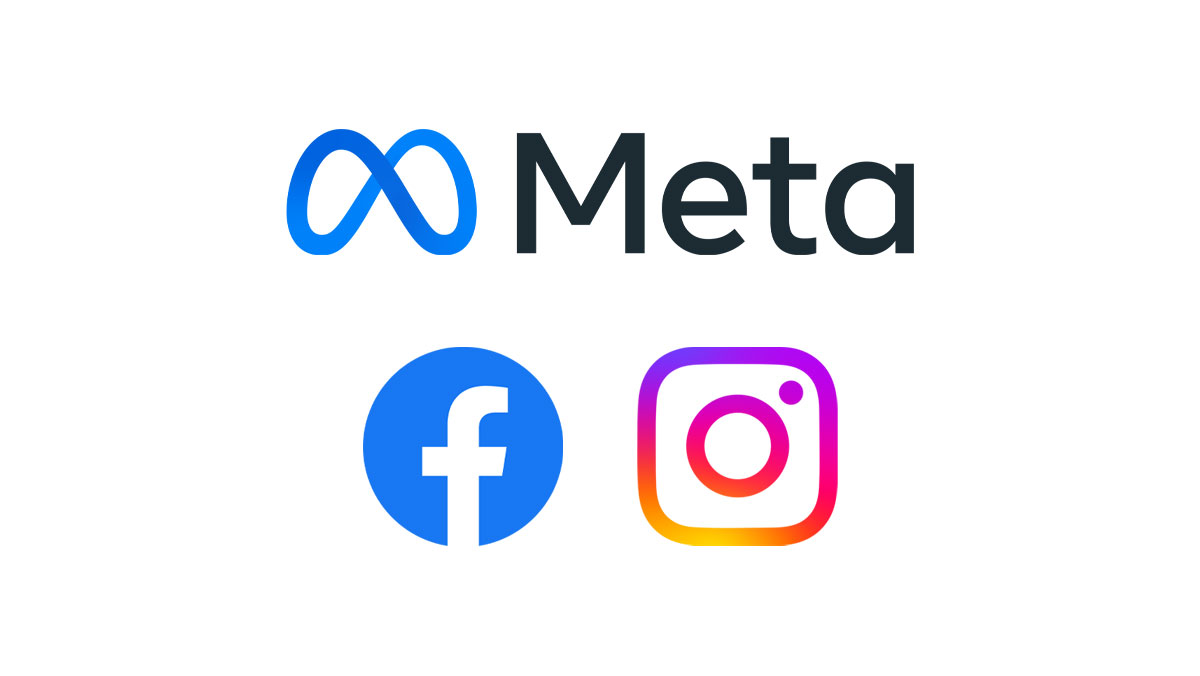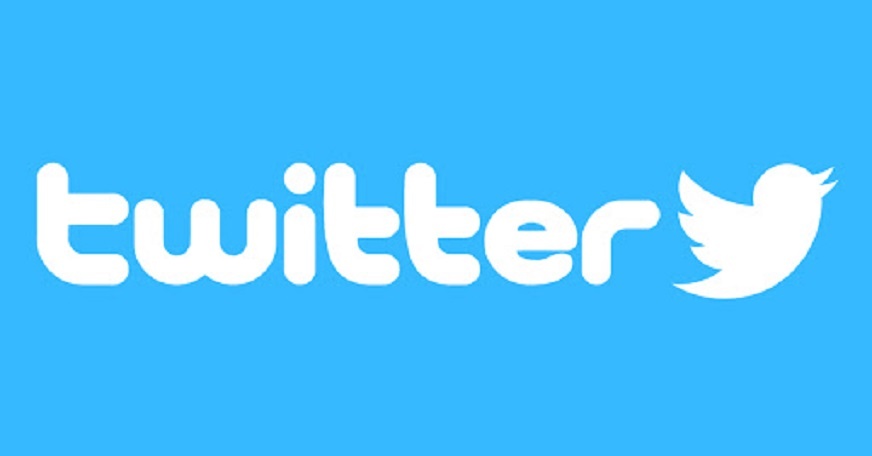Technology
Facebook Rallies Partners to Unite for Safer, Better Internet


By Dipo Olowookere
Facebook and Today is Safer Internet Day (SID) have launched a series of initiatives to help make the internet a safer and better place for people across Africa, especially children and the youth.
Facebook is partnering with public sector agencies and non-governmental organisations from across Africa under the rallying call “Be the change: unite for a better Internet”.
“Nothing is more important to us than the safety of the people who use Facebook. Every day people come to Facebook to connect with people and issues they care about, and they should be able to do so in a safe, secure environment,” says Akua Gyekye, Public Policy Manager Facebook, Africa.
Facebook builds products that empower the community to stay in control, support each other during crises and stay safe online. Every Facebook product has privacy and security built into it to protect your information.
Worldwide conversation
Over 100 countries are participating in an effort to start conversations and help people think about the small steps they can take to stay safe online. The initiative is coordinated by the joint Insafe/INHOPE network, with the support of the European Commission, and national Safer Internet Centres across Europe and beyond.
In Africa, Facebook is working with partners such as: Watoto Watch in Kenya, the International Center for Leadership Development and the Women’s Technology Empowerment Centre in Nigeria, South Africa’s Film and Publication Board, JOXAfrica Association in Senegal, Tech Women Zimbabwe as well as J Initiative and Ghana Internet Safety Foundation from Ghana to ensure the safety and education of their communities and address the needs of vulnerable people.
Facebook is providing financial and marketing support for them to use to raise awareness about online safety. Facebook is also hosting an event in Johannesburg, South Africa and Nairobi, Kenya to promote the importance of online safety to students, teachers, parents and policymakers.
Everyone has a part to play
Gyekye says: “This is an opportunity to explore the role we all play in helping to create a better and safer online community. We are proud to work with young people, parents, carers, teachers, social workers, law enforcement, companies, and policymakers to create a better Internet.”
Facebook has redesigned its Safety Center, an engaging resource to help people get the information they need about controlling their information and staying safe. It walks you through the tools Facebook offers to control your experience as well as numerous tips and resources for safe and secure sharing. It is available in over 50 languages, is mobile friendly and includes step-by-step videos.
TechWomen Zimbabwe
“As more Zimbabwean women and girls go online to take advantage of the immense opportunities the internet offers, they empower themselves with knowledge, education and connections with others,” says Techwomen Zimbabwe’s Founder, Aretha Mare. “We are determined to break down barriers to the Internet for women and girls so they can maximise the benefits of the Internet – and that includes tackling challenges such as online harassment and bullying.”
Watoto Watch Network: Kenya
“The Internet brings offers great opportunities for Kenya’s youth and children. This year’s Safer Internet Day gives young people the opportunity to voice their views on how to make the internet better,” says Lillian Kariuki, executive director at Watoto Watch Network.
JI Initiative from Ghana
“We are passionate advocates for a safe Internet for young people and children, so we are pleased that Facebook embraces its responsibility to keep people safe on its platform,” says Awo Aidam Amenyah, Executive Director at JI Initiative. “We are pleased to work with Facebook to promote positive online experiences for everyone.”
Ghana Internet Safety Foundation
“The massive support we’ve seen for this year’s Safer Internet Day is truly inspiring,” says Emmanuel Adinkrah, Co-Founder and CEO of Ghana Internet Safety Foundation. “It is heartening to hear about the ways young people are using technology to take positive action online to empower each other and spread kindness. We want to encourage them to keep building a better internet for all.”
Film and Production Board: South Africa
“It is important to have conversations early and often about how inappropriate content on the Internet may affect children,” says Janine Raftopoulos, Manager Communications and Public Education South Africa’s Film & Publications Board (FPB). “Parents, educators, guardians and industry all have a part to play in ensuring that children understand how to stay safe online.”
ICLDING: Nigeria
“We’re pleased with our partnership with Facebook for Safer Internet day to raise awareness and have conversations about staying safe online,” says Felix Bidemi Iziomoh, Executive Director at ICLDING. “We are proud to play a role in uniting our community for a better internet.”
Women’s Technology Empowerment Centre (W.TEC)
“The 2017 theme for the Safer Internet Day ‘Be the change: unite for a better internet’ resonates strongly with the Federal Government of Nigeria’s campaign, ‘The change begins with me’,” says Adeyemi Odutola, Communications Officer at Women’s Technology Empowerment Centre (W.TEC). “We are excited to partner with Facebook to host a day of workshops and fun activities for secondary students, where they will learn how to navigate the Internet confidently and safely.”
Senegal (JOXAfrica Association)
“Protecting children on the Internet is a priority for us as we rally with governments NGOs and private companies for a better online community,” says JOXAfrica Senegal’s Assane Diouf. “Together with Facebook, as the world’s biggest online social network, we can create higher awareness of how we can keep children safe online.”
Technology
Expert Reveals Top Cyber Threats Organisations Will Encounter in 2026

By Adedapo Adesanya
Organisations in 2026 face a cybersecurity landscape markedly different from previous years, driven by rapid artificial intelligence adoption, entrenched remote work models, and increasingly interconnected digital systems, with experts warning that these shifts have expanded attack surfaces faster than many security teams can effectively monitor.
According to the World Economic Forum’s Global Cybersecurity Outlook 2026, AI-related vulnerabilities now rank among the most urgent concerns, with 87 per cent of cybersecurity professionals worldwide highlighting them as a top risk.
In a note shared with Business Post, Mr Danny Mitchell, Cybersecurity Writer at Heimdal, said artificial intelligence presents a “category shift” in cyber risk.
“Attackers are manipulating the logic systems that increasingly run critical business processes,” he explained, noting that AI models controlling loan decisions or infrastructure have become high-value targets. Machine learning systems can be poisoned with corrupted training data or manipulated through adversarial inputs, often without immediate detection.
Mr Mitchell also warned that AI-powered phishing and fraud are growing more sophisticated. Deepfake technology and advanced language models now produce convincing emails, voice calls and videos that evade traditional detection.
“The sophistication of modern phishing means organisations can no longer rely solely on employee awareness training,” he said, urging multi-channel verification for sensitive transactions.
Supply chain vulnerabilities remain another major threat. Modern software ecosystems rely on numerous vendors and open-source components, each representing a potential entry point.
“Most organisations lack complete visibility into their software supply chain,” Mr Mitchell said, adding that attackers frequently exploit trusted vendors or update mechanisms to bypass perimeter defences.
Meanwhile, unpatched software vulnerabilities continue to expose organisations to risk, as attackers use automated tools to scan for weaknesses within hours of public disclosure. Legacy systems and critical infrastructure are especially difficult to secure.
Ransomware operations have also evolved, with criminals spending weeks inside networks before launching attacks.
“Modern ransomware operations function like businesses,” Mitchell observed, employing double extortion tactics to maximise pressure on victims.
Mr Mitchell concluded that the common thread across 2026 threats is complexity, noting that organisations need to abandon the idea that they can defend against everything equally, as this approach spreads resources too thin and leaves critical assets exposed.
“You cannot protect what you don’t know exists,” he said, urging organisations to prioritise visibility, map dependencies, and focus resources on the most critical assets.
Technology
NCC Begins Review of National Telecommunications Policy After 26 Years

By Adedapo Adesanya
In a consultation paper released to the public, the commission said it is seeking input from stakeholders, including telecom operators, tech companies, legal experts, and the general public, on proposed revisions designed to reposition Nigeria’s telecommunications framework to match current digital demands. Submissions are expected by March 20, 2026.
The NTP 2000 marked a turning point in Nigeria’s telecom landscape. It replaced the 1998 policy, introducing full liberalisation and a unified regulatory framework under the NCC, and paved the way for the licensing of GSM operators such as MTN, Econet (now Airtel), and Globacom in 2001 and 2002.
Prior to the NTP, the sector was dominated by Nigerian Telecommunications Limited (NITEL), a government-owned monopoly plagued by obsolete equipment, low teledensity, and poor service. At the time, Nigeria had fewer than 400,000 telephone lines for the entire country.
However, the NCC noted that just as the 1998 policy was overtaken by global developments, the 2000 framework has become structurally misaligned with today’s telecom reality, which encompasses broadband, 5G networks, satellite internet, artificial intelligence, and a thriving digital economy worth billions of dollars.
“The rapid pace of technological change and emerging digital services necessitate a comprehensive update to ensure the policy continues to support economic growth while protecting critical infrastructure,” the Commission stated.
The review will target multiple chapters of the policy. Key revisions include: Enhancements on online safety, content moderation, digital services regulation, and improved internet exchange protocols; a modern framework for satellite harmonisation, coexistence with terrestrial networks, and clearer spectrum allocation to boost service quality, and policies to address fiscal support, reduce multiple taxation, and lower operational costs for operators.
The NCC is also proposing entirely new sections to the policy to address emerging priorities. Among the key initiatives are clear broadband objectives aimed at achieving 70 per cent national broadband penetration, with a focus on extending connectivity beyond urban centres to reach rural communities.
The review also seeks to formally recognise telecom infrastructure, including fibre optic cables and network masts, as Critical National Infrastructure to prevent vandalism and enhance security.
In addition, the commission is targeting the harmonisation of Right-of-Way charges across federal, state, and local governments, alongside the introduction of a one-stop permitting process for telecom deployment, designed to reduce bureaucratic delays and lower operational costs for operators.
According to the NCC, the review aims to make fast and affordable internet widely accessible. “The old framework was largely voice-centric. Today, data is the currency of the digital economy,” the commission said, highlighting the need to close the urban-rural broadband divide.
The consultation process is intended to gather diverse perspectives to ensure the updated policy reflects current technological trends, market realities, and consumer needs. By doing so, the NCC hopes to maintain the telecommunications sector’s role as a key driver of economic growth and digital inclusion.
Technology
FG to Scrutinise MTN’s $2.2bn Full Take Over of IHS Towers

By Adedapo Adesanya
The Minister of Communications, Innovation and Digital Economy, Mr Bosun Tijani, says the Nigerian government is assessing MTN Group’s acquisition of IHS Towers to ensure the deal aligns with Nigeria’s telecommunications development goals.
On Tuesday, MTN Group said it has agreed to acquire the remaining 75.3 per cent stake in IHS Holding Limited in an all-cash deal valued at $2.2 billion. The deal will be funded through the rollover of MTN’s existing stake of around 24 per cent in IHS, as well as about $1.1 billion in cash from MTN, roughly $1.1 billion from IHS’s balance sheet, and the rollover of no more than existing IHS debt.
Mr Tijani, in a statement, said the administration of President Bola Tinubu has spent the past two years strengthening the telecom sector through policy clarity, regulatory support, and engagement with industry stakeholders, boosting investor confidence and sector performance.
“Recent financial results from key operators show improved profitability, increased investment in telecoms infrastructure, and operational stability across the sector,” he said.
“These gains reflect the resilience of the industry and the impact of government reforms.”
The minister added that telecommunications infrastructure is critical for national security, economic growth, financial services, innovation, and social inclusion.
“We will undertake a thorough assessment of this development with relevant regulatory authorities to review its impact on the sector,” Mr Tijani said.
He added that the review aims to ensure market consolidation or structural changes, protect consumers, safeguard investments, and preserve the long-term sustainability of the telecom industry.
Mr Tijani also said the government remains committed to maintaining a stable and forward-looking policy environment to keep Nigeria’s telecommunications sector strong and sustainable, in line with the administration’s broader digital economy vision.
Upon completion, the transaction will see MTN transition from being a minority shareholder in IHS to a full owner. It will also see IHS exit from the New York Stock Exchange and become a wholly owned subsidiary of MTN.
For MTN, the deal represents a decisive shift as data demand surges and digital infrastructure becomes increasingly strategic with a booming digitally-oriented youth population on the continent.
-

 Feature/OPED6 years ago
Feature/OPED6 years agoDavos was Different this year
-
Travel/Tourism10 years ago
Lagos Seals Western Lodge Hotel In Ikorodu
-

 Showbiz3 years ago
Showbiz3 years agoEstranged Lover Releases Videos of Empress Njamah Bathing
-

 Banking8 years ago
Banking8 years agoSort Codes of GTBank Branches in Nigeria
-

 Economy3 years ago
Economy3 years agoSubsidy Removal: CNG at N130 Per Litre Cheaper Than Petrol—IPMAN
-

 Banking3 years ago
Banking3 years agoSort Codes of UBA Branches in Nigeria
-

 Banking3 years ago
Banking3 years agoFirst Bank Announces Planned Downtime
-

 Sports3 years ago
Sports3 years agoHighest Paid Nigerian Footballer – How Much Do Nigerian Footballers Earn



















